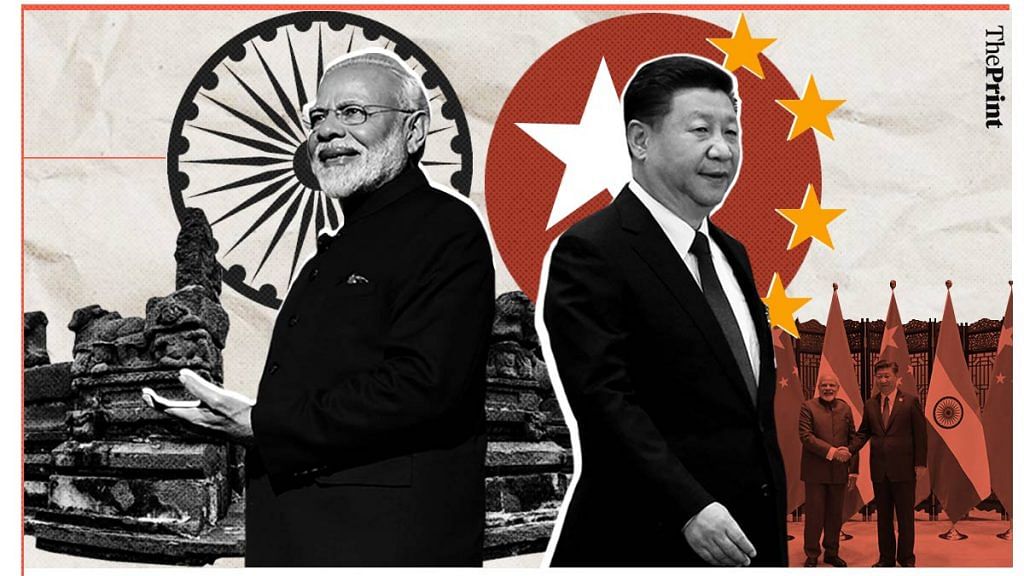India is set to take over the Chair of the Executive Board of the World Health Organization after its annual meeting later this month. This should be welcome to New Delhi, because it has always sought a greater role in multilateral agencies that ‘govern’ the world. Moreover, India, like many other countries, swears by multilateralism. Such roles do bring with them prestige and a measure of influence.
But for New Delhi, they also bring along a more unwelcome companion: pressure to take sides in important international disagreements. India’s partners will expect India to support them diplomatically in such tussles. As important as it is to support India’s partners, it is also in New Delhi’s interest to ensure that China does not gain disproportionate influence over such bodies because that has consequences for India’s interests too.
India will take over the leadership role in the WHO at a time the world is riven by the coronavirus pandemic and is angry at China’s incompetence or worse. Indeed, the WHO’s unusual deference to Beijing, especially in the initial weeks of the Covid-19 outbreak when the health body’s director-general was reportedly “almost directly quoting (from) the Chinese government’s statements” to the press, has caused controversy. India’s traditional reluctance to take sides, especially against China, will be tested again and the cost of such balancing acts will continue to rise.
Intensifying international power conflicts, not least because of the coronavirus pandemic, will manifest themselves in different but interlinked forms. It will become increasingly difficult for New Delhi to sidestep them all without suffering some costs.
Also read: Don’t suffer alone — India and the world need to act against China’s intimidation tactics
Creatures of power politics
But an important part of the upcoming power politics will be centred not so much on direct military confrontation with China – though that cannot be ruled out – but in a contest over control of multilateral agencies.
Multilateral agencies are creatures of international power politics, something that is well recognised but often overlooked. International power politics was already gathering pace as a consequence of China’s rise because the closer China comes to the US in relative power, the more intense the competition. The coronavirus pandemic has only sharpened this competition.
The US-China clash has made it difficult even to reach an agreement on a UN Security Council resolution calling for a worldwide ceasefire of all hostilities so everybody can focus on dealing with the pandemic. China insists on inserting language supporting the WHO in the resolution, which the US opposes, leading to the deadlock.
In this tense circumstance, it is not surprising that India will face pressure from its partners in the international community to take a strong stand in favour of an open investigation into the origins of the coronavirus pandemic and the WHO’s role in it. ThePrint reported last week that both the US and Australia have asked India to push for reforms within the WHO and support an inquiry into the origins of the pandemic. They have particularly good reasons for their anger at China.
The US is inching towards one lakh deaths as a consequence of the pandemic and unemployment rate could possibly cross what was seen in the Great Depression, 80 years ago. On top of this, it is a presidential election year and neither candidate wants to be seen as soft on China. Australia, on the other hand, has been subject to intimidation by China because of its calls for an open investigation into the origins of the pandemic.
Also read: Xi contained Covid-19, but suppressing rising chorus against China won’t be easy
Position on Taiwan
For New Delhi, both the US and Australia are increasingly important partners as China’s pressure increases all around the Indian periphery. India’s reluctance to take a stand will come under growing strain because India needs these partners, and Indian credibility as a partner will be tested. Washington’s undependability is a common trope in Indian foreign policy debates but by the same token, Indian dependability will be as much a concern to New Delhi’s partners. This is not a concern that should be dismissed lightly because such questions have never been far from the surface.
And it is not just Australia and the US. Taiwan, which was prompt in supplying India medical equipment to deal with the Covid-19 crisis, also wants to participate in the World Health Assembly next week, and wants India to support it. China, which considers Taiwan a part of its territory, opposes Taiwan’s attendance. India has usually been reluctant to cross Beijing on the Taiwan issue, but Taipei has been garnering increasing global support. President Donald Trump even signed a US legislation that seeks to support Taiwan diplomatically amid growing Chinese pressure. India is unlikely to change its policy on Taiwan anytime soon, but this is one more indication of the pressures India faces.
Also read: Modi govt’s domestic politics hurting India’s ties abroad. But not as badly as critics say
Shifting sands
India has come a long way in the last decade and is now much more comfortable in seeking to enhance its own capabilities by building security partnerships with various powers in the Indo-Pacific. And it has taken a stand on issues like the Belt and Road Initiative (BRI) when it directly transgresses Indian territorial claims.
But New Delhi’s response in the current scenario appears to be once again to split the difference. Though Prime Minister Narendra Modi supported strengthening and reforming the WHO in his remarks at the G-20 virtual summit in late March, there appears to have been a rethink more recently. According to “people familiar with developments” in the Indian government, New Delhi now says that reforming WHO can wait until after the pandemic crisis is resolved. This sidesteps the issue, which is about supporting India’s partners, and is unlikely to fool anyone.
The author is a professor in International Politics at Jawaharlal Nehru University (JNU), New Delhi. Views are personal.
